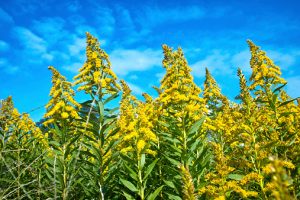
Ragweed is native to the east and mid-west of America and can grow anywhere. Ragweed season is typically between August and November. Symptoms of a ragweed allergy can include sneezing, coughing, runny nose, itchy throat and ears, irritated red eyes and even hives. Additionally, individuals with a ragweed allergy may find they experience itchiness or burning in their mouth after consuming cantaloupe, watermelon or bananas, as these fruits can cause ragweed symptoms during allergy season.
Another revelation from the research was among NO2 fumigated ragweed plants, researchers uncovered a protein to be elevated. The protein was previously unfamiliar as an allergen. Further research is required to explore the protein in depth.
The researchers note that ragweed allergies may intensify in the future as pollution continues to increase. In America, ragweed is the number one cause of hay fever and other allergies. Study leader, Dr. Ulrike Frank, said, “After studies have already shown that Ambrosia growing along highways is clearly more allergenic than [ragweed] plants growing away from road traffic, we could provide a reason for this.”
If you have a ragweed allergy it’s important to take steps to minimize your allergic reaction to it. Some helpful tips include:
- Avoid contact with the ragweed plant
- Take antihistamines to minimize symptoms – taking these medications prior to the season can lessen symptoms
- If OK’d by your doctor, take allergy shots which can help you over the course of some years
The findings were published in Plant, Cell and Environment.
Sources:
http://www.ncbi.nlm.nih.gov/pubmed/26177592
http://acaai.org/allergies/types/ragweed-allergy